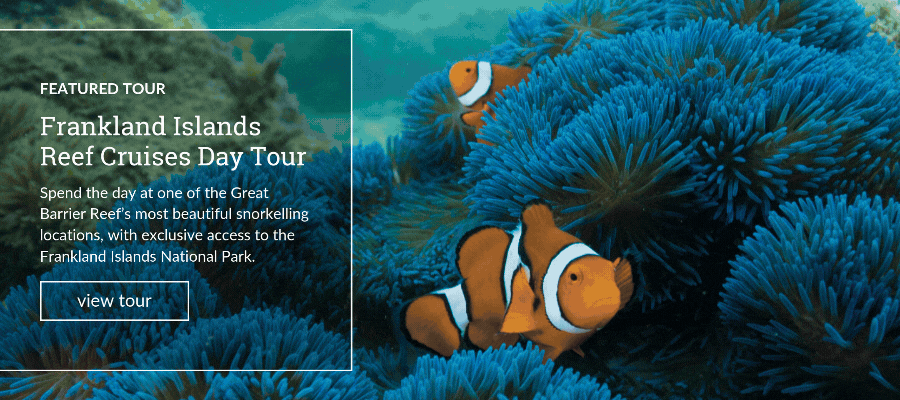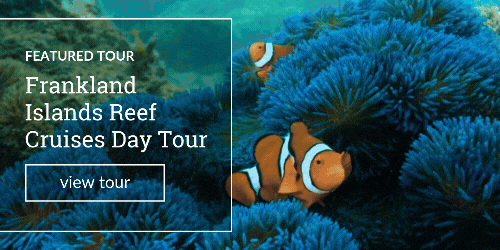For the Frankland Island Reef Cruises' team, monitoring the health of the reef is a commitment that spans over a decade. Since 2012, the team has collaborated closely with the Great Barrier Reef Marine Park Authority and actively participated in the Eye on the Reef program, contributing to crucial surveys such as Reef Health Impact Surveys and monitoring the impacts of crown-of-thorns-starfish and Drupella snails.
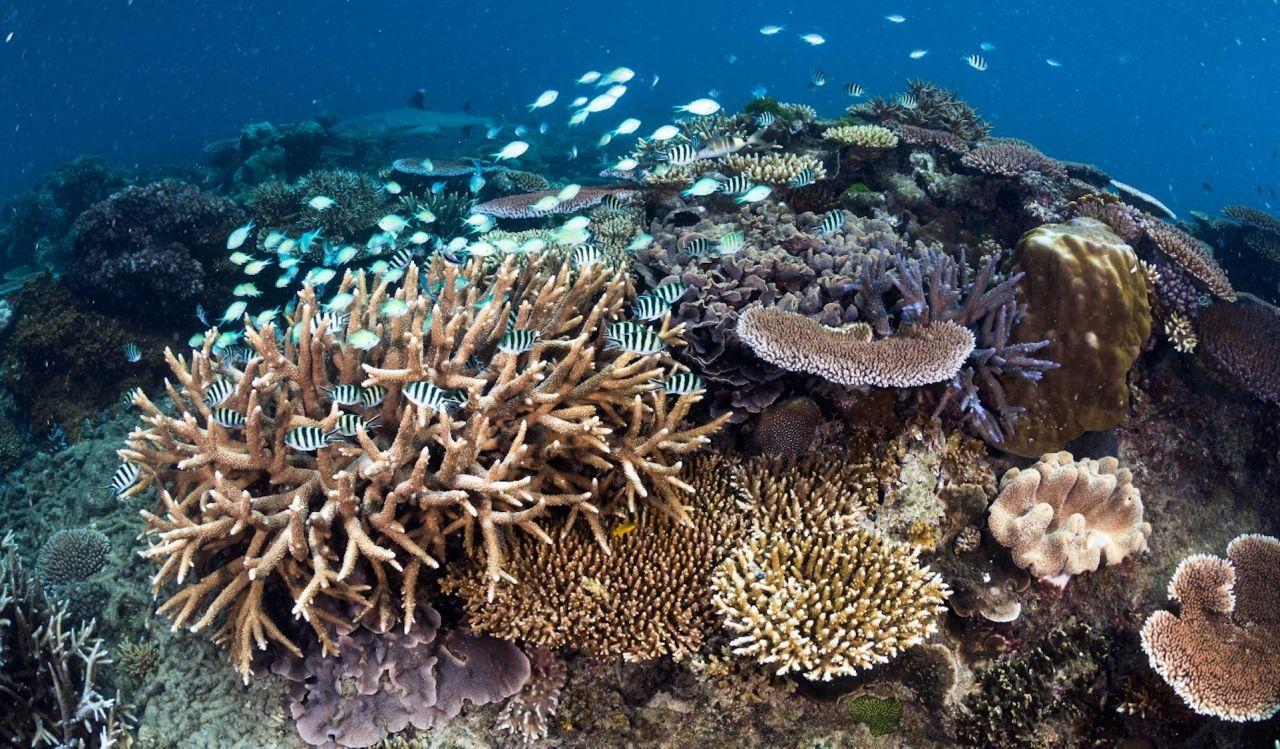
Coral reef around Frankland Islands. Image: Frankland Islands Reef Cruises.
Frankland Islands Reef Cruises' guide Andy Ratter, who has been working on the reef for over 20 years and actively monitoring and collecting data for several different programs over this time, explains that the work is supported by an app which is available to the public, allowing anyone to report their observations while visiting the reef. This initiative engages tourists in conservation. "The whole reef is about the same size as the state of Victoria, which makes dedicated scientific monitoring logistically challenging," he explains. "And every observation helps us understand the reef better and protect its future."
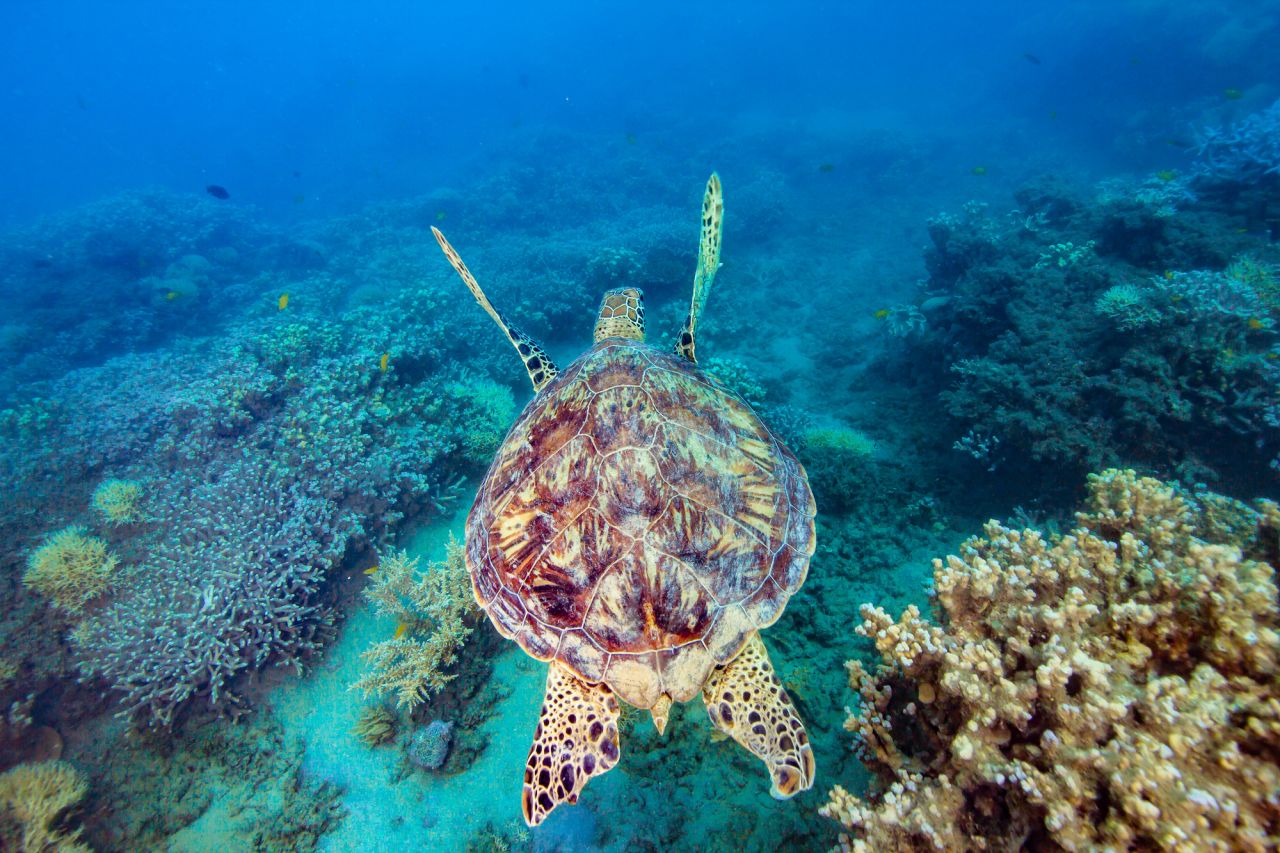
Turtle. Image: Frankland Islands Reef Cruises.
Every week, guides conduct tourism surveys at two designated snorkel sites, collecting data on coral health, fish populations, and signs of pollution. They log their observations, recording iconic marine life, including turtles and manta rays. This commitment, while voluntary, is driven by a shared passion for preserving the reef's delicate ecosystems.
Furthermore, the team plays an essential role in educating guests about reef conservation. Andy says, "Every time we take visitors out, it's a chance to teach them how they can help. We want them to understand that they're part of this community."
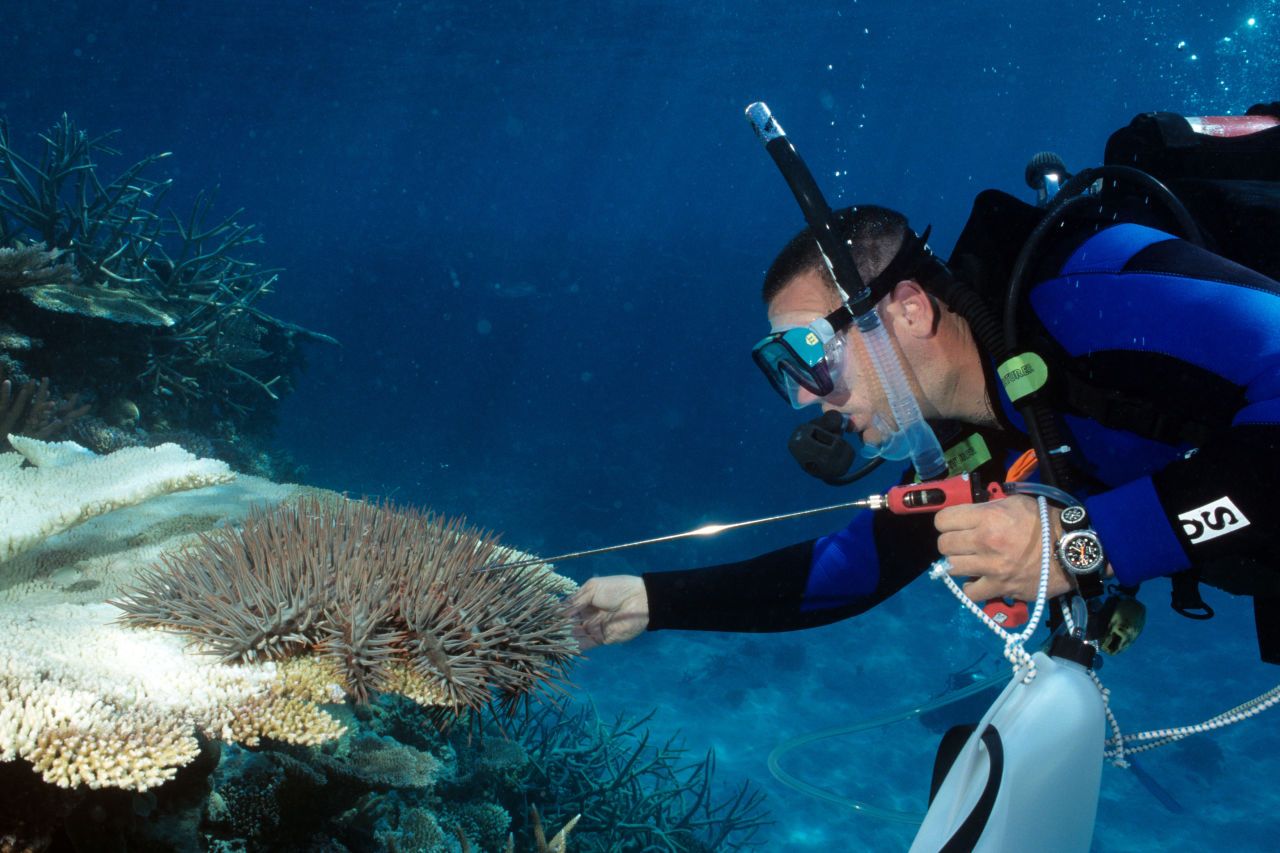
Crown-of-thorns starfish. Image: Great Barrier Reef Marine Park Authority (GBRMPA).
Andy explains that while the majority of people are doing the right thing, it only takes one person to cause damage. "Our monitoring work is very important, but our team's efforts also extend beyond data collection," he says. "We engage with boat operators and anyone out on the water, fostering a collaborative spirit in protecting the reef. Through education and monitoring, the aim is to preserve the reef's health for generations to come."


